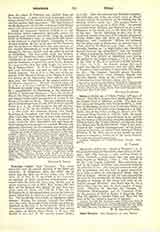

Issachar (Hebrew: YSSKR; September Issachar).—The exact derivation and the precise meaning of the name are unknown. It designates, first, the ninth son of Jacob and the fifth son of Lia (Gen., xxx, 16-18; xxxv, 23; I Par., ii, 1), on whom it was bestowed on account of some particular circumstance connected with his birth (cf. Gen., xxx, 14-18), and of whom nothing is told in Holy Writ besides the fact that, at the descent into Egypt, he had four sons (Gen., xlvi, 13; Num., xxvi, 23, 24; I Par., vii, 1). It designates, in the second place, one of the tribes of Israel, which had the ninth son of Jacob for its ancestor. Our knowledge of the tribe of Issachar is rather meager. During the journey through the wilderness, that tribe, along with those of Juda and Zabulon, marched on the east of the tabernacle (Num., ii, 5). It contained 54,400 warriors when the first census was taken at Mount Sinai (Num., i, 28 sq.), and 64,300 at the time of the second census (Num., xxvi, 25). After the entrance into Western Palestine, this tribe was one of the six which stood on Mount Garizim during the ceremony of the cursing and the blessing (Deut., xxvii, 12). The precise limits of its territory are not given in Holy Writ. Its general boundaries were Zabulon and Nephtali to the north, Manasses to the south and to the west, the Jordan to the east. Its lot, according to Jos., xix, 17-23, comprised sixteen cities and their villages, prominent among which were the cities of Jezrael, Sunem, Engannim, and Anaharath. Within its territory was the great plain of Esdraelon, the general form of which enabled the Hebrew poet (Gen., xlix, 14) to describe Issachar as “a large-limbed ass stretching himself between the sheepfolds”, and the fertility of which is praised by travelers down to the present day. The tribe played an important part during the period of the Judges (Judges, v, 15; x, 1, 2); and in the time of David it counted 145,600 warriors (I Par., vii, 1-5). Its history during the royal period was likewise important, and the third king of Northern Israel belonged to that tribe (III Kings, xv, 27). The Prophet Ezechiel places Issachar among the Southern tribes between Simeon and Zabulon (Ezech., xlviii, 25, 26), and St. John names it between Levi and Zabulon (Apoc., vii, 7).
FRANCIS E. GIGOT

